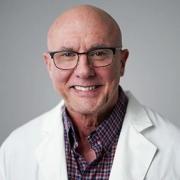Recognizing you have a problematic relationship with substance use is not always easy. Our current culture is more accepting of certain types of substance use, such as alcohol or marijuana, and casual use does not always represent a problem. There is also increased scrutiny focused on dubious practices adopted by rehab facilities to onboard patients, making many reluctant to seek professional help.
Recovered receives many questions from the public regarding accessing treatment, being able to recognize when substance abuse is a problem, who is likely to develop an addiction, and more. To get the best answers to these questions, we approached healthcare and addiction experts to get their insights on how to address these issues and to answer your questions.

Is "casual" use of scheduled substances possible without the risk of developing a problem?
According to SAMHSA’s annual national survey on drug use in 2022, 70.3 million Americans (24.9% of the population) over 12 years old reported using an illicit substance in the past year. In the same year, 48.7 million (17.3%) reported having a substance use disorder, with nearly half (27.2 million) reporting an alcohol use disorder instead of an illicit substance.[1]
This data suggests that there is a wide margin of Americans who use substances without developing a substance use disorder, or who don’t believe they have a problem. This could be down to those who use substances recreationally or casually, such as only at parties or in certain settings, or those who think their use is not a cause for concern.
We asked the experts whether it is possible to have a relationship with substances of abuse without the risk of developing a disorder down the line. Here’s what they said:
Dr. Michelle Dees

Medical advisor
PsychD
Dr. Michael Kane
Many other factors can also contribute to the development of a use disorder, such as genetics, environment, and mental health. You never know when casual use can turn into something more serious, so it's important to always be mindful and cautious of your usage. [4]

Medical advisor
Dr. Jordan Calabrese
If you are predisposed to having a substance use disorder, you may want to steer clear of even recreational use of what could be called “safe” substances. If substance use runs in your family, or if you have a personality that tends toward the addictive side, avoiding substances altogether is your safest bet. [5]

Medical advisor
Are certain individuals more likely to develop a substance use disorder?
We often think of substances themselves as the root cause of addiction. However, this is not always the case, and a wide spectrum of factors can influence substance use disorders.These can include:[2]
- Genetics
- Environmental factors
- Social factors
- Geographical location
- Traumatic events
- Pre-existing mental health conditions
We asked our experts to expand on what exactly makes someone more or less likely to become addicted to substance abuse.
Gary Tucker
Genetics: Genetic predisposition can play a significant role in the development of SUD. Individuals with a family history of substance abuse are more likely to develop SUD themselves, as they may inherit certain genes that make them more susceptible to addiction.
Age: Initiating substance use at a young age increases the likelihood of developing SUD.
Cultural Factors: Cultural attitudes towards drug use and availability within a community can influence patterns of use.
Environmental Variables: Peer pressure, family dynamics, and economic status also play crucial roles. [6]

Medical advisor
Licensed Psychotherapist
Dr. Michael Kane

Medical advisor
Na'ilah Amaru
Genetic predispositions play a role if there's a family history of addiction or someone inherits traits that make them more susceptible to addictive behaviors.
Environmental factors such as exposure to substance use at an early age, peer pressure, trauma, and socioeconomic status can also contribute to the development of addiction. Also, underlying mental health conditions such as depression, anxiety, or trauma can increase the risk of substance abuse which is important to consider when exploring policy solutions to this issue. [7]

Medical advisor
Advocacy & Policy Strategist
How easy or difficult is it to get help for substance use disorders?
Despite substance addiction rehabilitation being one of the biggest industries in the United States, it is not always straightforward for people to access treatment. Financial, geographical, and logistical considerations can act as barriers to those seeking treatment. Another consideration is the range of treatment options available and knowing which one is right to treat the individual's condition.
Here’s what the experts had to say on accessing addiction treatment.
Gary Tucker
Availability of treatment centers and qualified professionals might be limited in certain areas.
Insurance coverage for addiction treatment can be variable, leaving some without necessary financial support.
Stigma around addiction can prevent individuals from seeking help. [6]

Medical advisor
Licensed Psychotherapist
Dr. Michelle Dees

Medical advisor
PsychD
Dr. Michael Kane
For instance, those without insurance may struggle to afford treatment, while others in rural or low-income areas may have limited access to facilities. This highlights the importance of addressing systemic issues and improving access to treatment for all individuals. [4]

Medical advisor
Na'ilah Amaru
For example, in some areas, there are long waiting lists for treatment programs, limited resources for those without insurance, or stigma associated with seeking help for addiction, which makes it challenging for people to access the support they need. [7]

Medical advisor
Advocacy & Policy Strategist
Related: Racial Disparity in Drug Overdose Deaths in the U.S.
Is government and state funding enough to cope with the current addiction problem?
While many rehab facilities in the U.S. are run by for-profit organizations, some operate on state funding or via charitable donations. The latter is often the only choice for those who don’t have insurance or can’t access the finances to pay for treatment. As the name suggests, these organizations require government or state funding to operate, which may have an impact on their ability to facilitate treatment to all those who need it. With the opioid epidemic still raging, do state and government-funded rehabs have the capacity to deal with the issue?
Gary Tucker

Medical advisor
Licensed Psychotherapist
Na'ilah Amaru

Medical advisor
Advocacy & Policy Strategist
What are the barriers to getting treatment for those who need it?
Many potential barriers prevent those in need from getting treatment. Some of these relate to a person's environment, financial status, or available access to healthcare advice for their situation. For others, barriers can relate to their gender, race, or sexual orientation.
Gary Tucker

Medical advisor
Licensed Psychotherapist
Dr. Michelle Dees

Medical advisor
PsychD
Dr. Michael Kane

Medical advisor
Na'ilah Amaru

Medical advisor
Advocacy & Policy Strategist
Dr. Jordan Calabrese
They don’t get enough publicity and the most vulnerable people who need them the most often don’t know they exist. Governmental funding falls way short of being a solution to the problem, but it is a good place to start if you are looking for low-cost treatment resources.
There is still a societal stigma today too that prevents some from entering treatment. The fear of family, friends, or employers finding out that you have a problem causes many to delay seeking treatment. [5]

Medical advisor
What role do patient or "body" brokers play in creating barriers to treatment?
Patient or “body” brokers are individuals who persuade people to receive addiction treatment from facilities regardless of whether they are equipped to treat the person’s specific needs. Body brokers receive large commission payments per person they get signed into rehab, which can lead to the well-being of patients being put second to financial gain.
Dr. Michael Kane

Medical advisor
Na'ilah Amaru

Medical advisor
Advocacy & Policy Strategist
Dr. Jordan Calabrese

Medical advisor
What more can be done to help those who need it?
While tackling a substance use disorder is a personal journey, some things can be done on an individual and societal level to help those who need it. Here's what the experts suggest to help those in need.
Gary Tucker
Public Awareness Campaigns: Launch campaigns to educate the public about SUD, reduce stigma, and inform about treatment options.
Telehealth Services: Expand telehealth options to make treatment more accessible, especially for those in remote areas or with mobility issues. [6]

Medical advisor
Licensed Psychotherapist
Dr. Michelle Dees

Medical advisor
PsychD
Dr. Michael Kane
Increased access to treatment - Governments and healthcare systems should work together to improve access to affordable treatment options for individuals with substance use disorders. This could include expanding insurance coverage, increasing funding for treatment facilities, and providing resources in rural or low-income areas.
Addressing underlying issues - In addition to treatment, it's important to address the underlying issues that may contribute to addiction. This could include improving access to mental health services, addressing trauma and adverse childhood experiences, and implementing preventative programs in schools. Stopping the cycle of addiction at its root can help prevent individuals from developing use disorders in the first place. [4]

Medical advisor
Na'ilah Amaru
Increasing funding for addiction treatment and prevention programs to ensure adequate resources are available.
Expanding outreach and education efforts to raise awareness about addiction, reducing stigma, and encouraging people to seek help early.
Fostering collaboration between government agencies, healthcare providers, community organizations, and advocacy groups to develop holistic approaches to addressing addiction and supporting recovery.
Substance abuse recovery can't be effective in patchworks or silos, and a more comprehensive, integrated approach is needed. [7]

Medical advisor
Advocacy & Policy Strategist
Dr. Jordan Calabrese

Medical advisor
A final word from Recovered
As the experts have made clear, those trying to get help for a substance use disorder face many issues, and getting the right information is key to getting appropriate treatment. The important thing to remember is that there are always options and many organizations such as Recovered are dedicated to helping those who are struggling with substance abuse get the care they need.
Here are some more resources for substance abuse support:
Substance Abuse and Mental Health Services Administration (SAMHSA)




